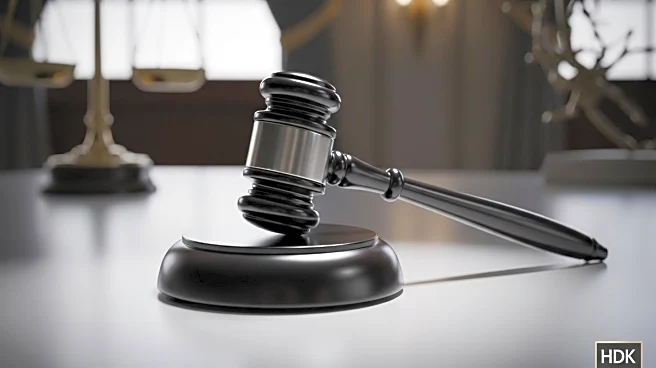What is the story about?
What's Happening?
Senate Republicans have voted to change the rules to facilitate the confirmation of President Trump's nominees. This decision allows the Senate to confirm certain nominees in groups rather than individually, aiming to speed up the process. The move comes after Republican lawmakers criticized Democrats for prolonging the confirmation process, which is one of the few powers the minority party holds in a GOP-dominated government. Senate Majority Leader John Thune initiated the rules change, which applies to sub-Cabinet, ambassador, and executive branch nominees, but excludes judicial nominees. The Senate is expected to finalize the rules change next week, with a package of 48 nominees likely to be confirmed soon.
Why It's Important?
The rule change is significant as it alters the balance of power in the Senate, reducing the ability of the minority party to delay confirmations. This could lead to a faster implementation of President Trump's agenda, as his nominees can be confirmed more swiftly. The decision reflects ongoing tensions between Republicans and Democrats over the confirmation process, highlighting the partisan divide in the Senate. By expediting confirmations, Republicans aim to ensure that the executive branch is fully staffed, potentially impacting policy decisions and governance.
What's Next?
The Senate is expected to finalize the rules change next week, and the package of 48 nominees will likely be confirmed. This could lead to further political debates and opposition from Democrats, who have criticized the move as a concession to the executive branch. The change may also set a precedent for future administrations, affecting how nominees are confirmed in the Senate.
Beyond the Headlines
The use of the 'nuclear option' raises questions about the long-term implications for Senate procedures and the balance of power between the legislative and executive branches. It may lead to increased partisanship and further erosion of traditional Senate norms, impacting the legislative process and governance.















